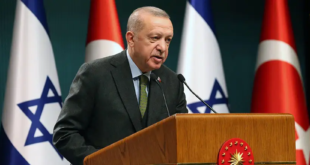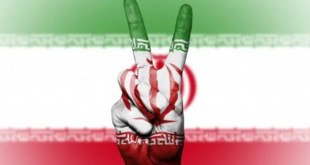 TEHRAN (FNA) It appears to be business as usual for a raft of energy companies defying US sanctions against Iran. In particular, companies in Europe, Iran’s main trading partner, are leading the way, with deals on the table involving national giants Total, Eni, and others.
TEHRAN (FNA) It appears to be business as usual for a raft of energy companies defying US sanctions against Iran. In particular, companies in Europe, Iran’s main trading partner, are leading the way, with deals on the table involving national giants Total, Eni, and others.
French oil giant Total was warned by President Nicolas Sarkozy in September to refrain from investing further in Iran, but at this writing is still discussing a $15 billion LNG terminal in Iran’s South Pars gas field. In November, Total CEO Christophe de Margerie told Reuters that he “would be happy to have a (South Pars) contract ready for signing, but there is no contract yet.”
According to an Energy Tribune report, discussions only slowed recently when Iran reportedly rejected a Total investment proposal of $11.2 billion, but the pace is likely to pick up in 2008.
Rome-based APS Engineering confirmed it had already signed a $585 million deal as part of a consortium in the same South Pars project, the same report said. And another consortium that includes German company Linde and Italy’s Eni subsidiary Snamprogetti is planning to submit plans for the LNG plant at South Pars.
The agency also reported that Spanish energy company Union Fenosa’s subsidiary Socoin was awarded a 32.5 million euro engineering contract in August; that Austria’s OMV awaits finalization of a preliminary LNG agreement it signed with Iran in April; and that Germany’s E.On is interested in buying natural gas from Iran.
In an even more blatant snub to the US sanctions, Paolo Scaroni, Eni’s chief executive, said his company would “stick to [its] contracts” and that forcing Eni to break them would not be “appropriate.”
It is known that Royal Dutch Shell and Spain’s Repsol have been recently negotiating to develop parts of South Pars, the world’s largest gas field.
US is at odds with Iran, mainly due to Iran’s independent and self-grown progress in the nuclear technology. Washington has laid much pressure on Iran to give up the most sensitive and advanced part of the technology, which is uranium enrichment, a process used for producing nuclear fuel for power plants.
According to the NPT, Iran is as a signatory entitled to pursue civilian nuclear technology, including uranium enrichment.
Foreign ministers from the permanent members of the UN Security Council as well as Germany are expected to meet in Berlin next Tuesday to iron out differences over new sanctions with most objections coming from Russia and China.
Tehran has so far rejected this demand.
Iran is under two sets of UN Security Council sanctions for its refusal to freeze uranium enrichment even after the peaceful nature of its nuclear programs and activities was proved.
Washington is pushing for additional UN penalties despite a recent report by 16 US intelligence bodies that endorsed the civilian nature of Iran’s programs. Following the US National Intelligence Estimate (NIE) and a similar report by the IAEA head in November which praised Iran’s truthfulness about key aspects of its past nuclear activities, Russia and China increased resistance to any further punitive measures by the Security Council.
Bush’s attempt to rally international pressure against Iran’s nuclear program has lost steam due by the US intelligence report.
Tehran says it never worked on atomic weapons and wants to enrich uranium only to produce fuel for reactors that would generate electricity, a claim substantiated by the NIE and IAEA reports.
Not only many Iranian officials, including President Mahmoud Ahmadinejad, but also many other world nations have called the UN Security Council pressure unjustified, especially in the wake of recent IAEA reports saying Iran had increased cooperation with the agency.
 Eurasia Press & News
Eurasia Press & News



